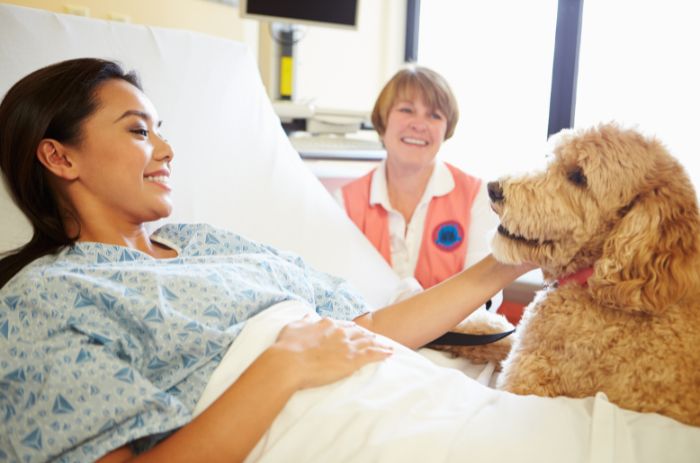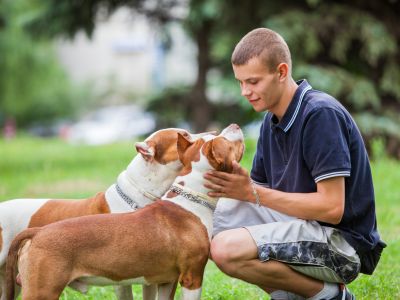Embarking on the recovery journey from addiction is an arduous path laden with unforeseen challenges and deep emotional valleys. In the midst of the storm, the grounding presence of a pet can offer a beacon of hope, a daily reminder of unconditional love, and a non-judgmental companion that fosters resilience. The supportive role of pets in addiction recoveryis multi-dimensional, enriching the lives of individuals in recovery in a plethora of ways. Below, we delve deeper into the profound ways in which pets facilitate healing and personal growth during addiction recovery.

Offering Emotional Solace and Unconditional Love
Individuals in the midst of recovery often find themselves grappling with complex emotions and memories that can be overwhelming. Pets, with their intuitive ability to sense distress and offer comfort, can become an anchor of emotional stability during such tumultuous times. The simple presence of a pet can act as a gentle reminder to stay grounded, offering solace through warm cuddles and affectionate nuzzles.
Moreover, the unconditional love that pets extend can significantly help in rebuilding self-esteem, which often takes a hit during periods of addiction. The non-judgmental and accepting nature of pets gives individuals a sense of being valued and loved, instilling in them a sense of self-worth and helping to mend the emotional wounds inflicted by addiction.
Instilling a Structured Routine and Purpose

Reestablishing a structured routine is a cornerstone in the journey of recovery. Pets inherently require a routine — be it feeding, grooming, or daily walks. This obligation to care for another being encourages individuals to rise above their internal chaos, offering a sense of responsibility and purpose that can be extremely therapeutic.
Moreover, dedicating time to nurturing a pet can foster a positive environment conducive to personal growth. As individuals nourish and care for their pets, it can imbibe in them a sense of achievement and joy, gradually helping to rebuild confidence and restore balance in their lives.
Physical Activity and Connection to the Outdoors
Engaging in physical activities is often advocated in recovery programs, and pets provide a natural avenue for this. Taking a pet for a walk encourages regular exercise, promoting physical well-being and facilitating a deeper connection with the natural world, which can be a source of calm and rejuvenation.
In addition, outdoor activities with pets offer a chance to engage in mindfulness practices — an opportunity to observe the beauty in the mundane, the joy in small moments, fostering a spirit of present living that is vital in the recovery journey. The simple act of watching a pet enjoy nature can be a beautiful, grounding experience that encourages healing and peace.
Mitigating Stress and Promoting Calm
The journey of recovery is marked with stressful moments and triggering situations. Pets, with their calming presence, can help mitigate stress, offering a sense of tranquility and safety. Numerous studies have highlighted the stress-reducing effects of spending time with a pet, illuminating the therapeutic potential housed in the silent companionship of a pet.
Beyond the scientific rationale, pets bring joy, laughter, and light-heartedness, offering spontaneous moments of happiness that break the monotony and challenges of recovery. Their playful antics can bring smiles and laughter, healing the soul with the medicine of joy and unspoken understanding.
Enhancing Social Connections and Community Bonds

As individuals navigate the recovery path, rebuilding social connections can be a critical aspect. Pets can facilitate social interactions, helping to break the ice in new encounters and fostering connections with fellow pet lovers, thereby enriching the individual’s social circle.
Furthermore, communities often organize pet-centric events, offering individuals a supportive platform to forge new bonds and share their experiences, thereby fostering a sense of community and understanding, crucial elements in building a support system during recovery.
Bearing Witness to Personal Growth
Pets bear silent witness to the transformative journey of recovery, offering a constant and comforting presence as individuals evolve and grow. This non-verbal companionship forms a tapestry of shared experiences, building a deep bond rooted in mutual respect and affection.
Moreover, as individuals achieve milestones in their recovery, the presence of a pet serves as a silent yet potent acknowledgement of the courage and strength exhibited in their journey. This constant companionship fosters a unique bond, presenting an unspoken language of love, courage, and resilience, offering both solace and joy in the challenging yet rewarding path of recovery.
Therapy and Recovery Programs Incorporating Pets
With an understanding of the deep bond between humans and pets, several recovery programs are incorporating pet therapy into their regimes. These structured programs harness the healing power of animals, offering therapeutic interventions guided by professionals.
Moreover, pet therapy extends beyond formal settings, finding expression in community outreach programs where individuals can share their recovery stories, building bonds over shared experiences of pet care, and fostering a network of support, understanding, and mutual growth.
Conclusion
As we pave the path for a more compassionate and holistic approach to addiction recovery , the role of pets stands paramount, offering a harmonious blend of emotional support, physical activity, and joyful companionship. Pets offer a mirror to the finer nuances of human emotions, encouraging individuals to heal with a sense of dignity, purpose, and unconditioned love.
Looking forward, we envisage a recovery landscape where pets are recognized not just as companions but as silent healers, guiding individuals with affectionate nudges and loving licks, nurturing them back to health with unconditional love and silent companionship. The journey to recovery, with a pet by one’s side, is a journey towards rediscovering joy, purpose, and the transformative power of love, leading to a fuller, richer life of recovery.




